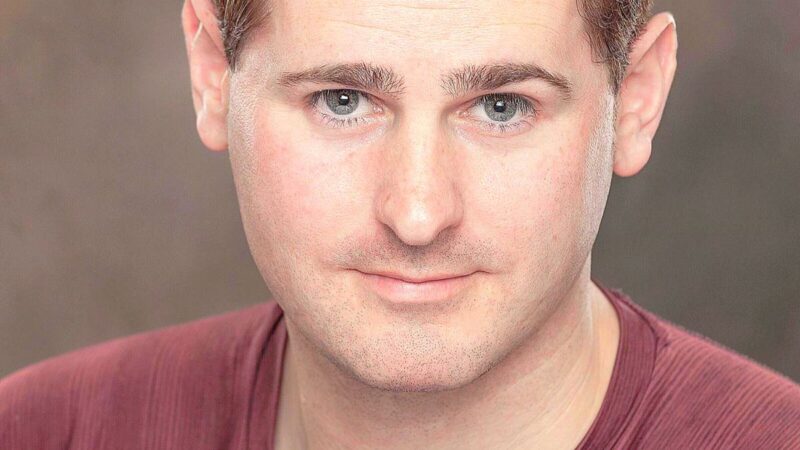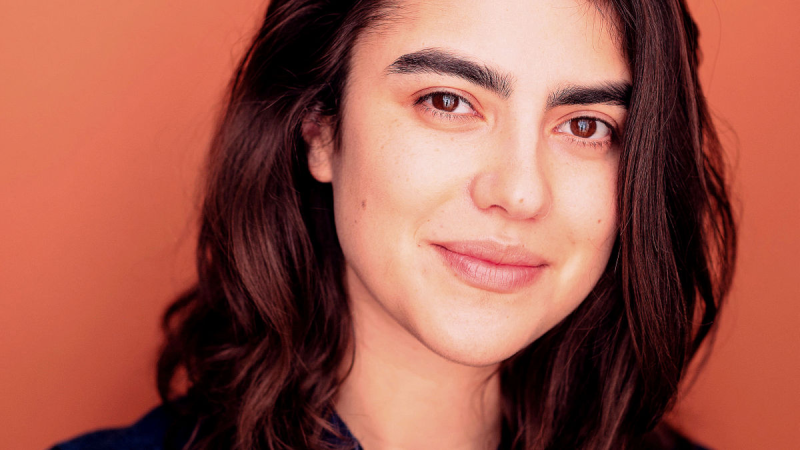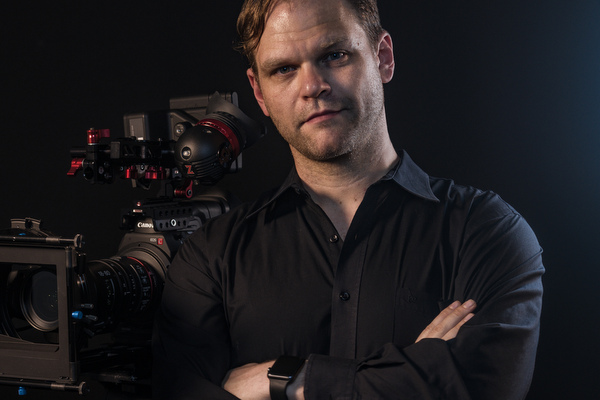
Wyatt Cagle grew up in Texas where his dad gave him an old VHS camera and two VHS players that were broken. From there Wyatt learned to fix VHS gear and how to linear edit (Well, he didn’t know it was called that at the time). Started making films in high school. From there went to college for film and worked at a production company at night doing weddings and local events. I learned enough to get a job in Poland for a travel show as a camera operator.
On my return to the states I DoP my first feature The Breakdance Kid in Austin. Those two experiences taught me a lot about what I didn’t know. I went to work in post-production at some large commercial facilities in Houston, Texas where again I learned about ‘shooting for the edit’ and serving the story. From there I’ve filmed for several TV shows, commercials, documentaries, and films over the years. It’s been a crazy ride.
indieactivity: Did you study cinematography?
Wyatt: I’m still studying. In college they just scratched the surface. I still take classes from time to time but really, I learn by studying other artists. Cinematographers, photographers, and painters all understand light. The joy for me is the addition of movement to the image. That is what makes cinema so compelling to me.
indiactivity: Tell us about your most recent project?
Wyatt: I just came back from Los Angeles where I was filming some scenes in an airline jet. Space is at a premium so getting rails in for the Dana Dolly and moving around the aircraft without damaging it was challenging. Plus we only had a certain amount of time that we could shoot, a long shot list, and only a few Arri M40s outside on a lift, that was our daylight. Because it was raining and we had zero sun. The Quasar Science Q-LED lights were a huge help in the small spaces. It gave great fill with a little footprint, overall it was a nice shoot with a great crew. I was also tasked in grading the footage, RAW out of an Sony FS7, and it all came out great.
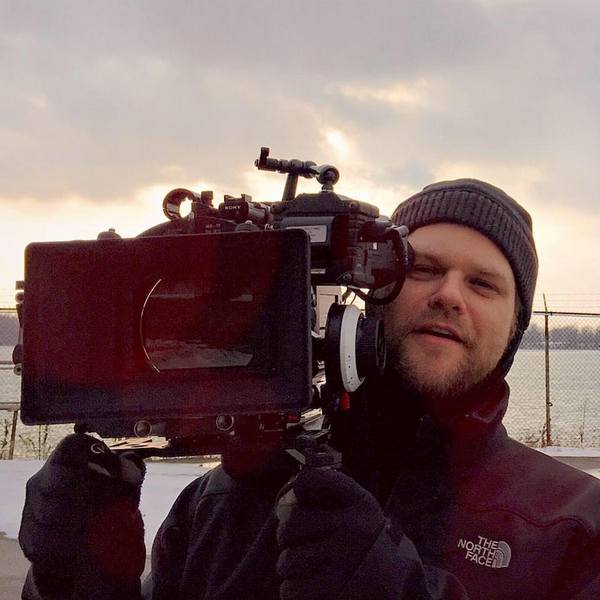
indieactivity: How do you prepare for work on a new project?
Wyatt: I begin with asking the director, what is most important thing we are trying to convey. What is our core, our touchstone. That way I can always go back to that if I get lost in my own opinions. My goal is not to just make pretty pictures. I want to take the vision out of the director head and put it on screen. Answering the ‘why’ is the most important. “Why is the character here? Why would they do that? Why are we make this film?” The answers will dictate a lot of what we do with the camera and light.
indieactivity: Who is your favorite cinematographer?
Wyatt: I grew up loving Adrian Biddle. I notice I tend to go back to his work for inspiration. I obsessed (still do) over Aliens and then saw how versatile he was with Princess Bride, Willow, Event Horizon, The Mummy (1999), V for Vendetta and the list goes on. Such a wide range of great work. Kind of a fan boy. Sad I’ll never get to meet him in person.
indieactivity: What is the difference between a cinematography and a DoP?
Wyatt: I’ll give you my non-scientific answer. All DoPs are Cinematographers but not all Cinematographers are DoPs. A cinematographer is a student of light, composition, and movement. They know a pretty image and they know how to get a camera to convey that image. A DoP does this and more. The word ‘director’ in the title becomes more important because you are ‘directing’ all these other artist and technicians on a production.
You have to have those people/management skills to communicate with the ACs, cam operator, gaffer, grips, director, producer, DIT, etc. It’s not just you going out with a camera. The Dop has to lead a unit. Sometimes it’s two people, sometimes its thirty, but you have to know how to lead to get the shot. That is probably the wrong answer but that is what I’ve got.
indieactivity: What brand of camera is your favourite?
Wyatt: Oh here we go. The great debate. It really depends on the project. For narrative or commercial I lean toward Arri and the Alexa line. But I’ve had huge success with the Canon Cinema line. The Varicam LT is a great one. The truth is all the cameras on the market are good. Some may be a little better in one environment, some in others.
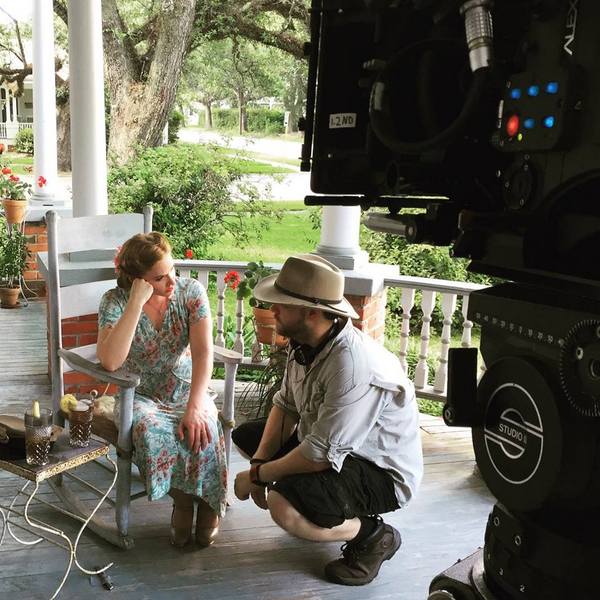
For the ‘look’ of the piece I’m much more focused on my lenses. Different brands give you vastly different feelings then the cameras, in my opinion. Especially after it goes into grading. For commercial work I go Ultra Primes or Zeiss CP2 or 3. For narrative I’ll try to find lenses that embody the story. That could be the latest Cooke lenses or some beaten up Russian lenses from the 1960s. Finding that combo is half the fun.
indieactivity: What do you look for in a camera?
Wyatt: Ergonomics that fit the job. Every sensor has pros and cons. So does every lens package and every camera body. Part of the job is picking the correct combination to tell the story and to help the director make his day. For example, I could demand as the DoP to shoot Alexa XT with anamorphic primes, but that may be a bad call for a travel documentary that is going to broadcast. The camera crew will be bigger, the footprint larger, the workflow painful for a quick turnaround, and all this makes the budget goes up. Then I don’t get hired again. That sounds bad all around because I made a choice for me and not the project.
indieactivity: How do you like to work with your camera crew?
I travel and most of the time I can’t take an AC with me. Because of this I can’t fall back on past relationships. I have to be exact with instructions. Telling the AC, dolly, gaffer, and whoever else is on my team what I need from them. Really it’s about doing your homework as a DoP.
I’ve never met someone who didn’t want to help but you have to enable them by giving a clear direction. Then you can start to open it up for suggestions and because you have a plan you should have time to talk things out with your crew. My 1st AC and my gaffer are my two most valuable assets on set. Give them what they need to do their jobs and they will make you look amazing.
indieactivity: Is there s science behind what you do?
Wyatt: There is but there is a lot of alchemy in the process. I always start with overheads for my gaffer as a starting point. But it is just a start. From there we dial in the look. You have to know what your camera requires so you get a certain image, so there is science there. But to know what is beautiful and what is not. That is harder to get from knowing your light meter ratios.
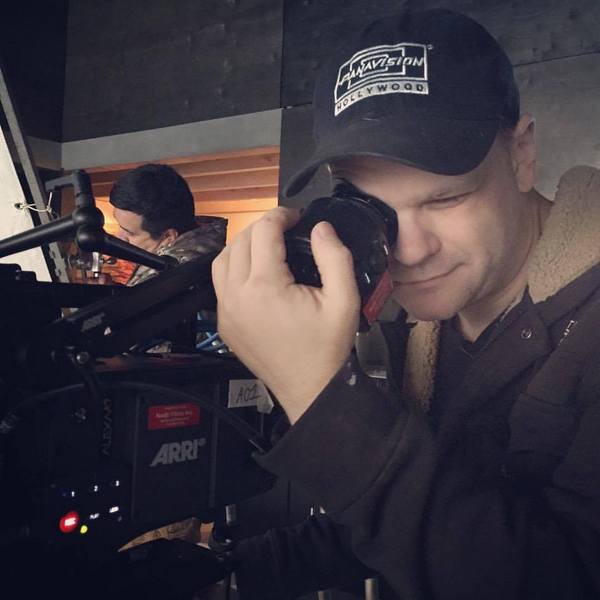
indieactivity: How do you prepare for a role?
Wyatt: Read the script many, many times. Ask a lot of crazy questions that directors love and sometimes hate. I like to know the soundtrack the director is using for inspiration. I think you can tell a lot about a piece if you know what type of music inspires the story.
I pull together vision boards to dial in the look for myself as well as the director. Trying to get in the director’s head as much as possible. Also talking about how they want the set to run. Some directors like is loose some like it militaristic. Knowing the director and the AD’s expectations helps make the days go smoother.
indieactivity: Describe the gear you will use on a indie film production?
Wyatt: For indie stuff I’ve been embracing battery powered LED lights. Aputure has some nice lights. I like my 120d and 300d because we can go anywhere with them. I typically run with a few Astra Light Panels and Westcott’s icelight 2. Then from there we can augment if we have the finances.
I’m also bringing the MoviPro out more and more. For indie work it is a must to move the camera quickly. The MoviPro is the first one that I really like. I used the M5 and the Ronin from DJI but always tolerated them. The technology is getting so good that it gets out of the way of the filmmaking process, which I like. Camera for indie it depends on workflow and distribution. GH5, EVA1, C300ii, AlexaMini, and RED are all on the table.
indieactivity: Describe the gear you will use on a big-budget production?
Wyatt: That would take too long for this article to go over my wish list. If I could name one thing. I’ve always wanted to film on Panavision glass. Filming with the Millennium DXL would be a joy. I’ve done test shoots with it but never on a real job. That or the new Alexa LF, just because it looks very interesting.
indieactivity: What do you want most from a director?
Wyatt: Communication. I’ve had a few directors lock up on me with larger set pieces. Even if you don’t know just tell me and we can talk it out. I’m here to help you find the solution, but sometimes I feel directors think the DoP is there to judge them. Part of my job is to make directors feel comfortable enough to talk to me about their ‘crazy idea.’ Many times I really like crazy.
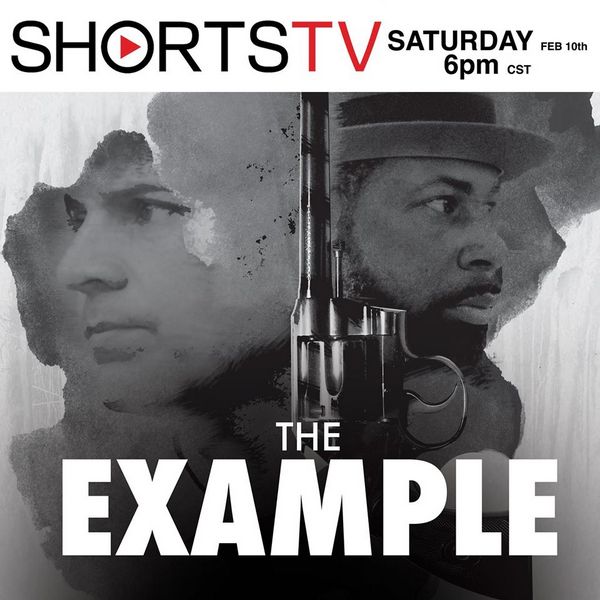
indieactivity: What do you want most from an actor?
Wyatt: Hit your mark. Know that part of your role in all this is to know your lines, give the emotion for the character, and hit your mark. You can give the best performance in the world but if you are standing six inches out of the light I can’t see your Oscar winning performance. The worst is when we change the light to accommodate an actor that can’t hit the mark, because the lighting gets flatter and less appealing. End of the day no one wants a bad image, including the actor.
indieactivity: What advice will you give DoPs around the world?
Wyatt: Don’t get locked up on the gear. If all you have is a 10 year old camera and a window, boom you can make a film. So many people say “I would film this but I don’t have X camera. Or its not in 4k.” I say work with what you have. Also it doesn’t need to be 90 minutes it can be one minute. Just tell stories with images. You don’t even need a microphone.
For the more seasoned DoPs I would say learn Davinci Resolve. Not to become a colorist by trade but understand what the technology can do. It’s also good to learn this so you can protect your look. I’ve started sending LUTs with the footage for clients that don’t have the budget for a colorist. That way it is less work for post. As cinematographers we have to be a little protective of our image in this regard because it can be a real problem on some projects.
indieactivity: Briefly describe your career?
Wyatt: I’m a DoP and editor based out of Houston Texas. I work in commercial, television, and independent film market.
Website | Facebook | Twitter | Vimeo | Instagram | LinkedIn | IMDB

